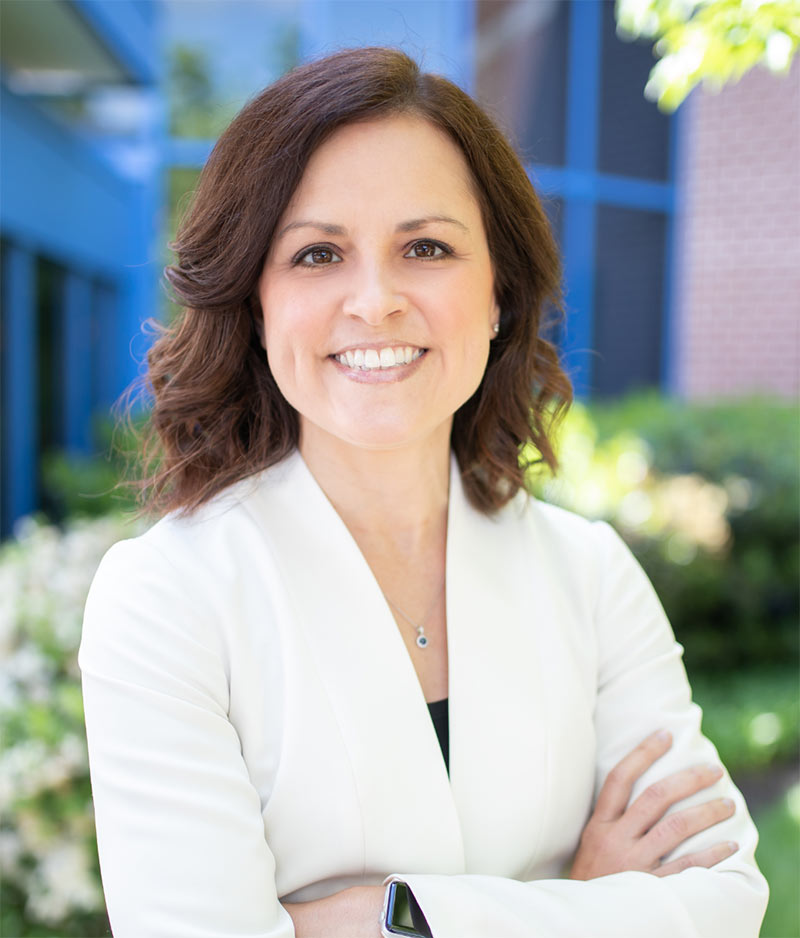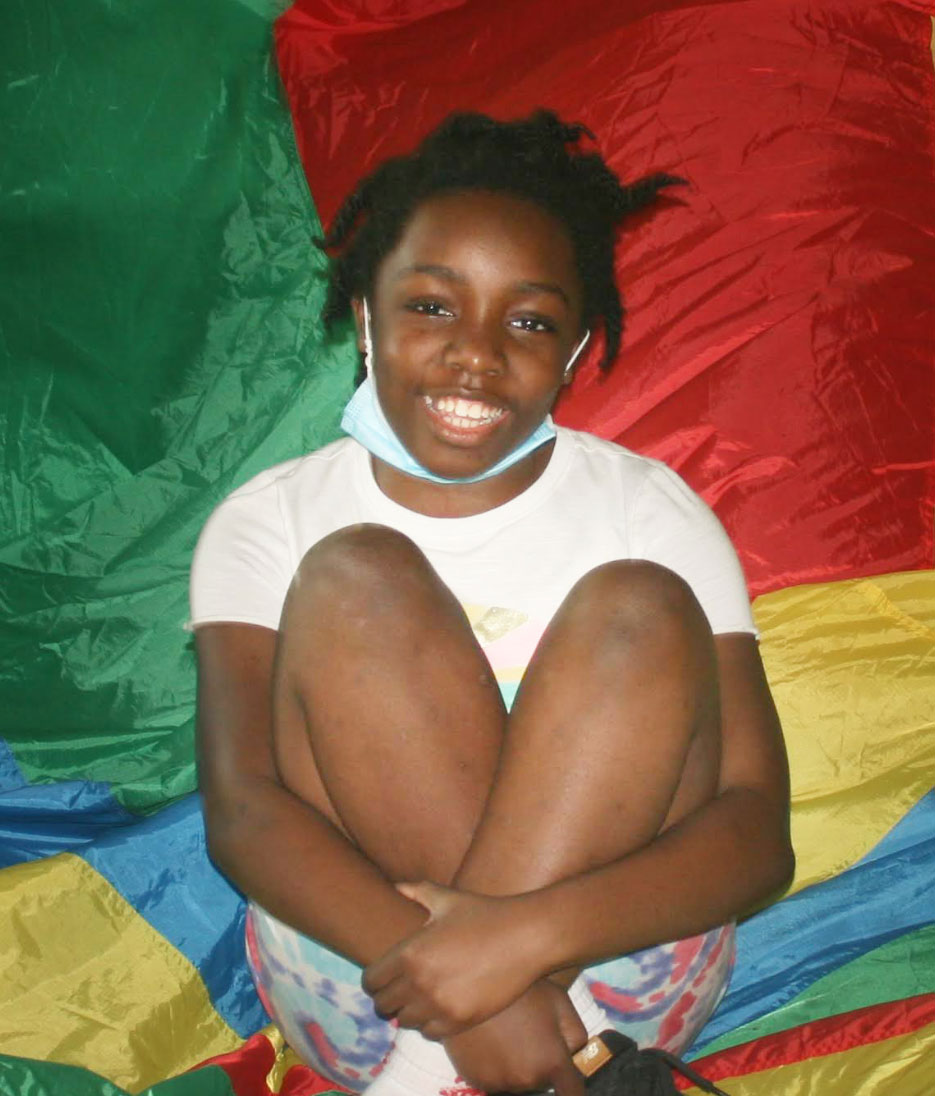Expanding Our Reach
HASA 2021 Annual Report
From Our CEO
We look around us and the world has transformed. It has been another year filled with unprecedented challenges, but it was also a year of unprecedented growth.
At HASA, our growth was driven by our community’s need. We expanded access to our clinic, added the Epic pathway and physical classrooms at Gateway School, and grew our interpreting services in a digital world.
And we added services for the aging adults in our community facing new challenges. In a world of masking and reliance on digital technology, which can both reduce the ability to use facial cues for communication, more seniors than ever before are in need of hearing health care and hearing aids. We teamed up with Access Hears and the Baltimore Department of Health to launch We Hear You Baltimore. The first ever partnership of its kind, We Hear Your Baltimore reduces the cost of hearing aids and hearing health care by thousands of dollars for aging seniors with or without insurance.
We are proud of what we’ve accomplished. But we aren’t done growing. With a strategic plan guiding our next two years, we are committed to improving our programs and services. Focused on four pillars: raising awareness, expanding our reach, deepening connections, and engaging our team, we will continue expanding and serving our community with unwavering humanity.
Throughout this year, I kept coming back to a quote by Andy Warhol, "They always say time changes things, but you actually have to change them yourself." While we continue to confront new health and economic challenges, we are charged with being the change we want to see. We are charged with serving our community’s children, seniors, and everyone in between. We are charged with building a more equitable and healthy Baltimore. And as we continue to grow, I am filled with hope that we will continue surmounting these challenges and finding new opportunities. I know we can do it because we will do it together.
With gratitude,
Dr. Erin Stauder
CEO/Executive Director
By the Numbers:
We Hear You Baltimore
Where do you go when your age-related hearing loss is affecting your quality of life but you don’t have the thousands of dollars for hearing aids and hearing health care? Seniors with hearing loss, especially those on a fixed income, are faced with difficult choices between their hearing health care and paying for covering their necessities like rent, food, and utilities. And with traditional hearing aids costing an average of $4,700, many are forced to leave their hearing loss untreated.
HASA launched the We Hear You Baltimore program in partnership with Access Hears, the Baltimore City Health Department Division of Aging, and The Harry and Jeanette Weinberg Foundation to fill a critical health care need in our community. The program pairs older adults with HASA’s Hearing Health Navigator who guides them throughout the entire process and ensures they receive affordable hearing health care—ranging from hearing evaluations to over-the-counter hearing technology and hearing aids.
Learn MoreEpic Pathway at Gateway School
When one door closes, another one opens.
Responding to a community need, Gateway School at HASA launched the Epic pathway for students who perform at or above their grade level academically but whose disabilities impact their communication and social skills. With diagnoses ranging from autism spectrum disorder, attention deficit hyperactive disorder, and/or anxiety, these students are high-achievers but face unique challenges in a general education setting.
Infusing communication and social skills with rigorous academic instruction, Epic pathway provides a learning environment for students to thrive both socially and academically. And the program allows classes to remain small and ensure individualized attention.
Eric Brown, father of Gateway student Tatianna, describes Gateway’s approach as a "unity of effort."
"Everybody, from the teachers and administrator to the parents, are involved in creating the best plan for each individual child," Eric says. "And all of the kids get the individual attention they need. In a lot of private school settings, you are just hoping they can squeeze it all in. But at Gateway, they get the individual attention that translates to more gains academically."
For Meredith Shelton, mother of eight-year-old Gateway student Evelyn (who goes by Evie), Gateway was "life-changing." Evie was born with cytomegalovirus and a brain disorder that affects her ability to speak and will cause early-onset hearing loss.
Once it was time for Evie to graduate from Kennedy Krieger early education programs, Meredith began looking for the best schooling options.
"We fell in love instantly. I knew from the first second we stepped into Gateway, that’s where she was meant to be," Meredith says. But before they could enroll, Meredith had to navigate the IEP process through the county schools to have Evelyn placed at Gateway. Then COVID-19 hit, and Evie’s public school classes went virtual.
"[Evie] was really struggling, having tantrums every day, and hitting herself. I’m not exaggerating when I say life wasn’t worth living those days. I called Dana [Dana Reinhardt, Education Director Gateway] in complete desperation."
Dana immediately saw that virtual school wasn’t an option for Evie. While it’s unprecedented to secure a placement so quickly, the unprecedented pandemic called for quick and innovative action. Dana found a grant to place Evelyn at Gateway mid-year.
"It was life-changing," Meredith says. "We always said, if Evie can’t communicate, how can she do anything else in life? Our goal is to teach her to be independent and communicate. And she has done remarkably well. We are hearing some vocalization of words and her sign language has improved significantly."
The gains aren’t purely academic, Meredith says.
"She’s eight now, and in the last year I’ve heard what sounds like ‘mama’ for the first time."
For Evie and all of the students like her, part of Gateway’s magic is the individualized teaching and ‘unity of effort.’ Students also seem to sense that Gateway is a world where they don’t have to conform. Rather, it’s quite literally built just for them. With adaptive tricycles in gym class and specially designed playground equipment, students at Gateway are able to both learn and play without restriction.
For students like Tatianna and Evie, Gateway provides individualized academic support. But it also offers them the opportunity to be unapologetically themselves.
"At Gateway, everyone here looks like Evie. She doesn’t know she’s any different and it’s a space meant just for her."
Explore FurtherLanguage Access
HASA’s Centralized Interpreter Referral Service (CIRS) provides American Sign Language courses and interpreting services for both organizations and individuals. Interpreters provided services across medical, educational, employment, and other settings. HASA’s interpreters provide a service, connecting the deaf and hard of hearing with their worlds. In addition to interpreting services, they serve as advocates and allies for the deaf and hard of hearing communities.
-
195+
ASL students
-
27,631
interpreting service hours
-
100+
pro bono interpreting hours. As the only nonprofit interpreting firm in Maryland, CIRS serves all those who need services.
Better Hearing & Speech Month 2021
Communication is how we connect and interact with our world. But according to the National Institute on Deafness and Other Communication Disorders, approximately 37.5 million adults in the U.S. have some degree of hearing loss, and 7.5 million have a speech disorder.
Raising awareness about communication disorders, HASA celebrated Better Hearing and Speech Month in March. The month-long awareness campaign went digital this year, sharing free community resources and encouraging everyone to have their hearing tested.
Keep Reading
Financial Highlights
Revenue Totals:
$8,433,137

Expense Totals:
$7,835,956






